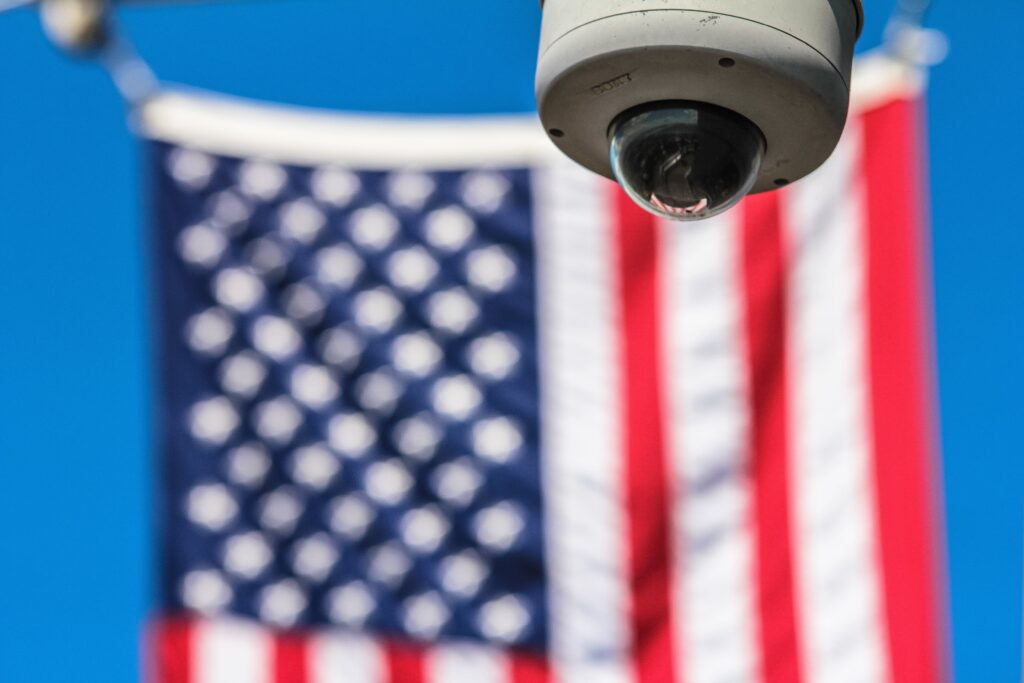Reps. Davids, LaTurner vote in favor of warrantless surveillance of Americans

Republicans and Democrats often give the impression that they are at odds with each other. However, when you really take a closer look at the two political parties, what you find is that both sides really love to come together to face their greatest enemy: The Constitution. The two political parties did just this earlier this week when 147 Republicans and 167 Democrats came together to vote in favor of the National Defense Authorization Act (NDAA) with Foreign Intelligence Surveillance Act (FISA) 702 which was set to expire by the end of this year, but has now been given a temporary extension.
What Section 702 does is allow the Intelligence Community (IC) to collect, analyze, and share foreign intelligence information without requirement of a warrant. The bill specifically targets non-U.S. persons located abroad who are believed to have, receive, or communicate foreign intelligence information. If the non-U.S. citizen does make contact with a U.S. citizen, the U.S. citizen’s information has the potential of being shared as well.
Through Section 702 U.S. person queries also known as “backdoor searches” are allowed, giving the government access to things like names, email addresses, and phone numbers, among other things, without the need for a warrant. The U.S. citizens can be anyone, even without any connection to criminal activity or terrorism. Anyone from journalists to human rights workers to businesspeople communicating about the “foreign affairs” of the United States can be targeted by the government.
Supporters of Section 702 suggest that it is needed “to protect the United States and its allies from hostile foreign adversaries, including terrorists, proliferators, and spies, and to inform cybersecurity efforts.”
However, it has received a great deal of controversy, with scrutiny coming from privacy rights groups.
“It’s incredibly disheartening that Congress decided to extend an easily-abused law with zero of the reforms needed to protect all of our privacy. As long as Section 702 is being used by the government to spy on Americans without a warrant, we will continue to fight this unconstitutional law and work with Congress to strengthen our Fourth Amendment protections against government surveillance,” the American Civil Liberties Union said in a statement.
It has come out that in 2021 the FBI did millions of backdoor searches on Americans. The rules for this spying are considered far too weak as it is known that the FBI and many other agencies have violated these rules hundreds of thousands of times without having to answer to anyone but the government.
While both Kansas Senators Roger Marshall (R) and Jerry Moran (R) voted against the bill, they were in the minority, and the bill passed the Senate on Wednesday. On Thursday, it was up to the House to either pass or kill the bill. However, while representatives like Ron Estes (KS-R) and Tracey Mann (KS-R) voted against the bill, they were still in the minority, as more Democrats and Republicans voted in favor of warrantless surveillance including Reps. Sharice Davids (KS-D) and Jake LaTurner (KS-R).
The bill now goes to President Joe Biden to be signed.
Thanks for reading. Be sure to share and subscribe. You can also help support independent journalism in Kansas by buying me a coffee at buymeacoffee.com/kscon.

Ian Brannan
Ian Brannan is an independent journalist who founded The Kansas Constitutional in April 2022. His work focuses on issues including abortion, Convention of States, drug policy, education, government, LGBT issues, media, and more. He is also the co-host of the Remember COVID podcast.
